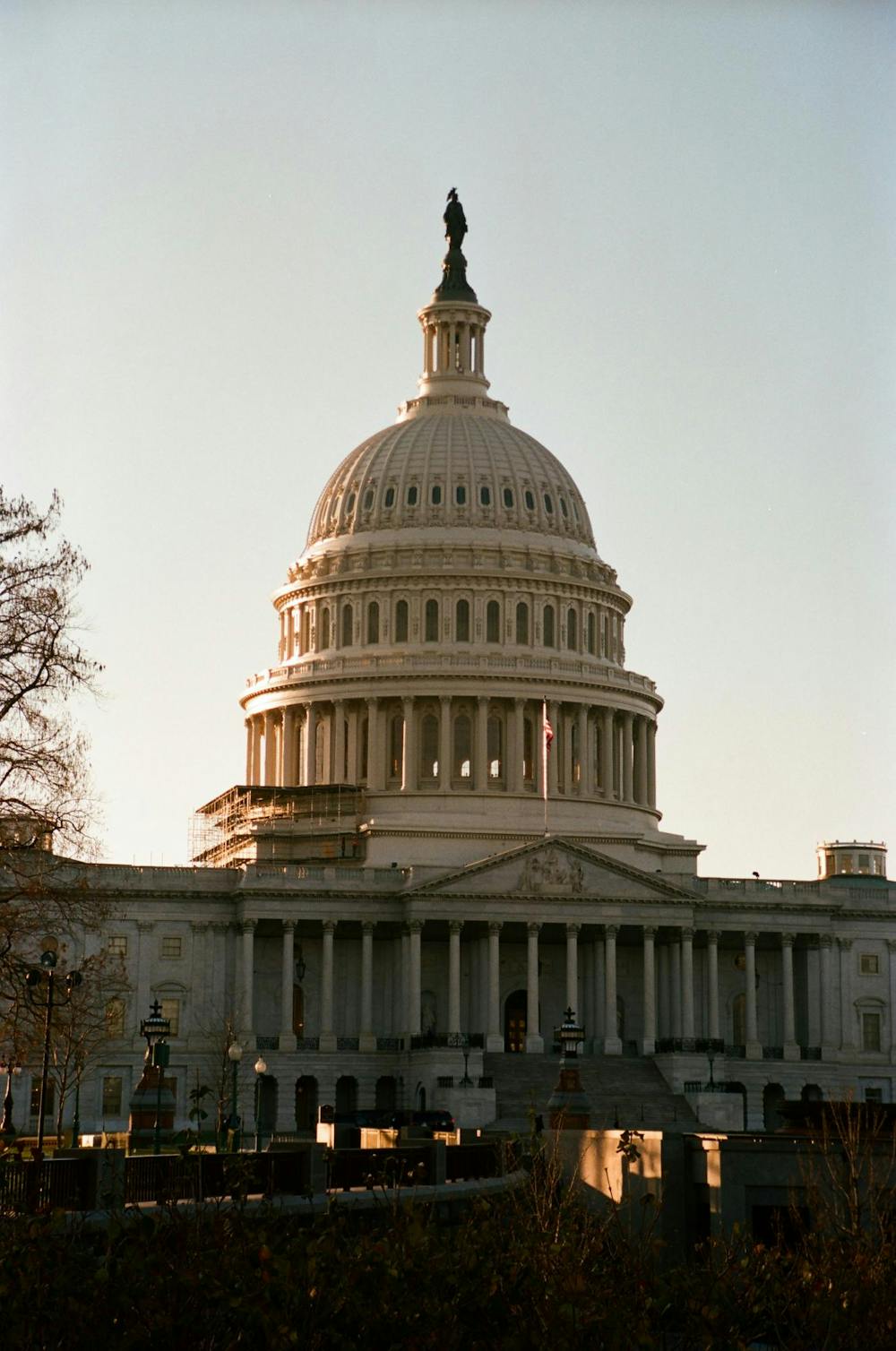Last weekend, I went on a school trip to Canada. Traveling by bus, I sat and looked out the window at the sights of South Bend and the greater Michigan area.
I saw corn, cows, farms and corn. Apart from the surroundings that I expected, one item came up more than I anticipated: campaign posters, specifically Trump-Vance 2024 campaign posters. In fact, I did not see a single home advertising their support for the Harris-Walz ticket on the entire 363 mile drive. The only mention of Harris came in the form of derogatory messages and cliché Trump bumper stickers that I saw alongside a “Talk Tuah” podcast sticker. Advertising and promoting a political presidential campaign is nothing new, but the seeming deluge of hatred and fearmongering against the opposing candidate is.
Fearsome political party allegiance has fundamentally broken the American political system. In George Washington’s farewell address, he warned against forming political parties, and here we are now voting not by issues but by party lines. People no longer vote for issues they believe in if they fall outside the realm of their party's associations. They have closed their minds to the idea that perspectives can change and that if one person is correct, the other must be wrong.
Since Donald Trump entered the political sphere, there has been a steady and progressive unraveling of decorum and open-mindedness in politics and America itself. I believe there have been three distinct phases of American political party allegiance. The first phase was when Americans voted according to their political belief within their parties but still put their country above all else. The second phase occurred when voters began to prioritize their loyalty to their party over their country. And the third phase, which we are in now, puts loyalty in a single figure over both party and country.
The third phase is so immensely idiotic that it sounds insane to even mention it, yet it is progressively increasing within the country. Donald Trump has become, to some, a savior of the country, a seemingly messianic figure who will “save them” from the evils of opposing viewpoints. Trump is so intertwined with the Republican Party's voting base that he has hijacked the party itself. This loyalty to a single politician became so strong that people left their homes, states and families to revolt against the government on January 6th.
However, it is crucial to note that the American political system itself has a hand to play in the immense and growing divide between the political aisle. The two-party system cannot and will not ever work. No one's beliefs fit flawlessly and neatly into a single box, yet that is what the political system encourages voters to do. A two-party system allows politicians to act like entitled children begging for candy at a store — they can get more political gain by protesting and complaining than by working for compromise. This system is conducive to decisiveness within the country simply because people are forced to be with or against others, and when these sides become increasingly polarized, so does the whole political system.
I understand that not all conservatives wake up each morning and pledge allegiance to Donald Trump. I also understand that there are liberals who idolize Kamala Harris as the savior of the nation. The radicalization and polarization of politics in both political parties is immensely concerning, but it just appears to be more prevalent and outspoken within the Republican Party. Donald Trump is no longer just a person — he is an idea. Donald Trump is the Republican Party, and anyone who tries to challenge that idea is expelled from the party itself.
The American political system is broken, but it doesn’t have to be.
The recent debate between J.D. Vance and Tim Walz demonstrates a possible return to respectful political interactions. The vice presidential debate completely juxtaposed the inflammatory nature of the Trump-Harris debate, reflecting a possible hope for the future of political interactions between parties. Following this example of decorum, politicians must work across party lines to foster a new era of mutual respect and decency. For the survival of American politics, both elected officials and the electorate need to work together in compromise instead of intransigence. American politics shouldn’t be built on a basis of hatred but on a foundation of unity that aids in leading to a better future for all people.
Declan is a surviving biochemistry major at the University of Notre Dame. He is usually trying to figure out how to work the printer. Contact at dburke7@nd.edu.










